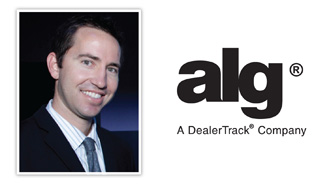ALG: Supply Restraint, Emotional Connection Yields Mini Strong Residuals, Used Brand Value

By subscribing, you agree to receive communications from Auto Remarketing and our partners in accordance with our Privacy Policy. We may share your information with select partners and sponsors who may contact you about their products and services. You may unsubscribe at any time.
SANTA BARBARA, Calif. –
Though small in stature, the Mini brand appeared to be a heavywieight in the latest Industry Outlook & Residual Trends report from ALG. Not only was the company found to have the strongest mainstream brand residual positioning for May/June, but it topped the mainstream side of ALG’s Used Statistical Brand Value measure, as well, which gauges how much weight a brand carries when it comes to used-vehicle values.
ALG director of residual value solutions Eric Lyman delved into these topics and more during an interview with Auto Remarketing late last week.
Starting with the ALG Residual Positioning data, Mini’s 36-month retention level is at 60 percent and leading the mainstream side, while Acura and Land Rover tied for the lead on the luxury side, with 36-month retention levels of 54 percent.
When asked what led to Mini having such strong value retention, Lyman said that Mini has been a “perennial top spot contender. A lot of that has to do with the restriction on the supply side.”
What’s more, he noted that: “They have a very strong emotional connection for their brand (among consumers) … there’s a value for that emotional connection they have.”
In other words, that emotional value equals a premium when it comes to value.
Subscribe to Auto Remarketing to stay informed and stay ahead.
By subscribing, you agree to receive communications from Auto Remarketing and our partners in accordance with our Privacy Policy. We may share your information with select partners and sponsors who may contact you about their products and services. You may unsubscribe at any time.
Moving over to the luxury side, Lyman suggested that Acura — as well as rivals Infiniti and Lexus, which tied for the No. 3 spot with 52-percent retention — has succeeded with a value-pricing approach relative to other luxury manufacturers that has allowed the brand to keep incentive spending low, which of course, benefits residuals.
At Land Rover, the company has trimmed down it overall sales volume so that incentive-spending is under better control, Lyman explained.
“We see a very high correlation between incentive spending and used-car values,” Lyman reiterated.
Used Statistical Brand Value
Moving over to the Used Statistical Brand Value rankings, topping the list on the mainstream side was Mini, while Porsche led the way on the luxury side.
Specifically, Mini’s brand value (relative to the mainstream average) was 29 percent, while Porsche was at 21 percent (relative to the luxury average).
“The brands that do well in this metric are the ones that have a good value proposition and pricing that allows them to minimize incentives,” Lyman explained.
Lyman again pointed to Mini’s supply constraints and the deep emotional connection owners often have with the vehicle.
At the bottom of the mainstream list were Kia (-19 percent), Dodge Trucks (-18 percent), Dodge Cars (-13 percent), Chrysler (-13 percent) and Suzuki (-12 percent).
However, it is important to remember that these rankings are of one- to five-year-old vehicles sold in 2010-2011. So, with many of these brands having revamped or totally changed their lineup, they are likely to see substantial improvements when these new vehicles hit the used market, Lyman stressed.


